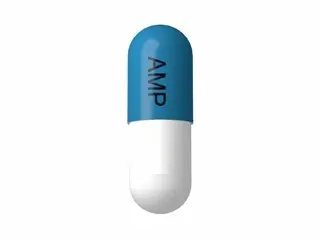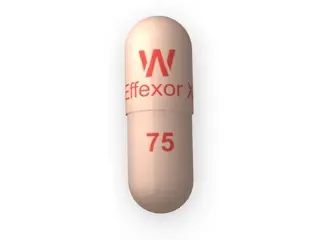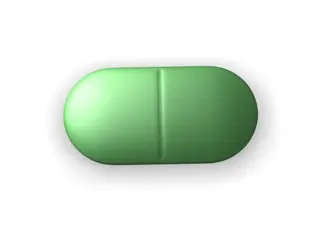Antidepressants
Explore our wide range of antidepressants designed to help improve mood and manage symptoms of depression. Find trusted brands, effective formulas, and affordable options to support your mental health journey. Shop now for fast, discreet delivery.
Antidepressants are a key category of medications used to treat various mood disorders, including depression, anxiety, and bipolar disorder. They work by balancing chemicals in the brain, such as serotonin, norepinephrine, and dopamine, which affect mood and emotional state. This review covers popular antidepressants frequently prescribed and available in online pharmacies.
Abilify (aripiprazole) is a unique medication often used as an add-on treatment for depression. It is classified as an atypical antipsychotic but has antidepressant properties when combined with other antidepressants. It helps improve mood and reduce symptoms of depression without many of the side effects common to older antipsychotics.
Bupropion SR is a sustained-release formulation of bupropion. Known for its activating effects, it treats depression without causing weight gain or sexual dysfunction. It works by increasing dopamine and norepinephrine levels. It is also used for smoking cessation.
Celexa (citalopram) is a selective serotonin reuptake inhibitor (SSRI). It increases serotonin in the brain to improve mood and reduce anxiety. It is often prescribed for major depressive disorder and has a generally favorable side effect profile.
Cymbalta (duloxetine) is a serotonin-norepinephrine reuptake inhibitor (SNRI). It treats depression and anxiety, and is also used for nerve pain. Cymbalta increases serotonin and norepinephrine levels, which helps improve mood and pain control.
Desyrel (trazodone) is used mainly to treat depression and insomnia. It works by affecting serotonin receptors and reuptake. Trazodone is known for its sedative effects, making it helpful for those with sleep troubles alongside depression.
Effexor and Effexor XR (venlafaxine) are SNRIs. They increase serotonin and norepinephrine. XR stands for extended release, which means the medication is absorbed slowly for longer effects. These drugs are effective for depression, generalized anxiety, panic disorder, and social anxiety.
Elavil (amitriptyline) is a tricyclic antidepressant (TCA). It raises levels of norepinephrine and serotonin. Though effective, it is often less preferred due to stronger side effects such as dry mouth and drowsiness. It is also used for chronic pain and migraines.
Endep is another TCA, similar to Elavil, often used for depression and nerve pain. It is known for its calming effects but should be used carefully due to side effects.
Eskalith (lithium carbonate) is a mood stabilizer rather than a classic antidepressant. It is crucial in managing bipolar disorder by reducing mood swings and preventing depressive episodes.
Geodon (ziprasidone), like Abilify, is an atypical antipsychotic. It is sometimes used as an add-on treatment for depression, particularly when bipolar disorder is present. It works on dopamine and serotonin receptors.
Lexapro (escitalopram) is an SSRI closely related to Celexa. It is widely used for depression and anxiety. It offers fewer side effects and is often better tolerated than older SSRIs.
Luvox (fluvoxamine) is an SSRI primarily prescribed for obsessive-compulsive disorder but also used for depression and anxiety. It increases serotonin in the brain and has sedative properties.
Nortriptyline and Pamelor (both forms of nortriptyline) are TCAs. They are effective for depression and nerve pain but are less commonly used due to side effects. Nortriptyline is sometimes preferred for older patients due to a better side effect profile than other TCAs.
Paxil and Paxil CR (paroxetine) are SSRIs. They treat depression, anxiety, PTSD, and OCD. Paroxetine is effective but can cause weight gain and sexual dysfunction in some patients. The CR version is controlled release for smoother blood levels.
Remeron (mirtazapine) is different from SSRIs and SNRIs. It acts by increasing norepinephrine and serotonin release. It helps with depression and insomnia. It often causes weight gain and increased appetite, which may be desired in some patients.
Risnia, Risperdal (risperidone) are antipsychotics sometimes used as adjuncts in depression, especially bipolar depression. Risperdal received attention for mood stabilization and reducing psychotic symptoms.
Seroquel (quetiapine) is an atypical antipsychotic often prescribed alongside antidepressants or for bipolar depression. It helps regulate mood and reduce depressive symptoms. Due to sedative effects, it can also improve sleep.
Sinequan (doxepin) is a TCA used for depression and anxiety. It is also prescribed for insomnia due to its sedating properties. Side effects can be similar to other TCAs.
Tofranil (imipramine) was one of the first TCAs developed. It remains useful for depression and sometimes enuresis (bedwetting) in children. It has more side effects compared to newer medications.
Venlor (venlafaxine) is another brand of Effexor. It offers similar benefits as an SNRI and is effective in treating major depression and anxiety disorders.
Wellbutrin and Wellbutrin SR (bupropion) are popular antidepressants distinct from SSRIs and SNRIs. They tend to boost energy and motivation. They have a low risk of sexual side effects and are sometimes prescribed for ADHD as well.
Zyprexa (olanzapine) is an atypical antipsychotic used with antidepressants to treat resistant depression and bipolar disorder. It helps stabilize mood but may cause significant weight gain.
In summary, the choice of antidepressant depends on patient needs, symptom profile, and side effect tolerance. SSRIs like Lexapro and Celexa are first-line treatments due to their safety and tolerability. SNRIs such as Cymbalta and Effexor offer additional norepinephrine benefits. TCAs and atypical antipsychotics are often reserved for treatment-resistant cases or specific symptom clusters. Always consult a healthcare professional to find the best treatment option.

























